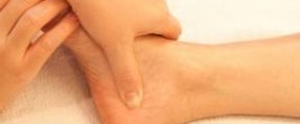Reflex Sympathetic Disorder

Formerly Reflex Sympathetic Dystrophy (RSD) or Causalgia, Reflex Neurovascular Dystrophy (RND) or Amplified Musculoskeletal Pain Syndrome (AMPS)Chronic arm or leg pain developing after injury, surgery, stroke, or heart attack. Complex regional pain is characterized by pain that is greater than would be expected from the injury that causes it.
People with Reflex Sympathetic Disorder may experience:
- Pain areas: in the nerves, arms or legs, back, foot, hands, or joints
- Pain types: can be chronic
- Sensory: pins and needles, sensitivity to pain, or uncomfortable tingling and burning
- Whole body: bone loss, nervous system dysfunction, or sweating
- Muscular: muscle twitch, loss of muscle, or muscle spasms
- Also common: depression, headache, joint stiffness, redness, stiffness, swelling, tenderness, or tremor
Recent evidence has led to the conclusion that Complex Regional Pain Syndrome is a multifactorial disorder with clinical features of neurogenic inflammation, nociceptive sensitisation (which causes extreme sensitivity or allodynia), vasomotor dysfunction, and maladaptive neuroplasticity, generated by an aberrant response to tissue injury. Treatment is complicated, involving drugs, physical therapy, psychologic treatments and neuromodulation and usually unsatisfactory, especially if begun late.